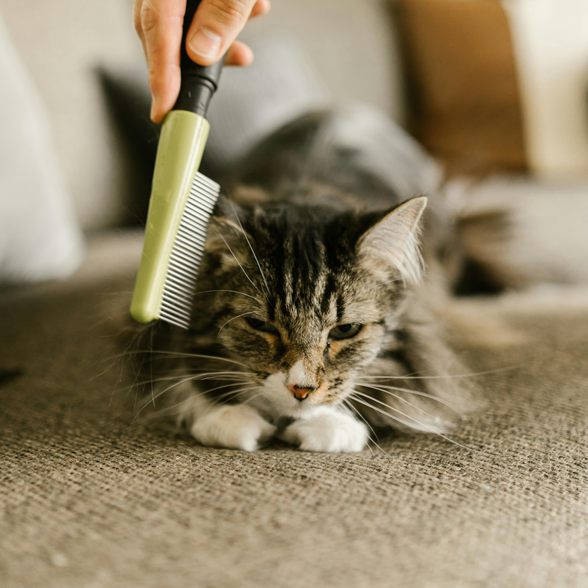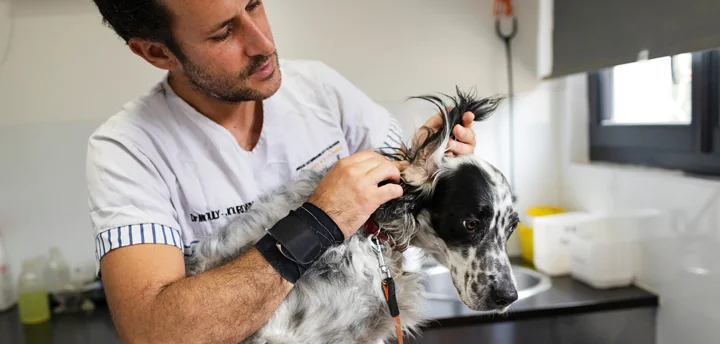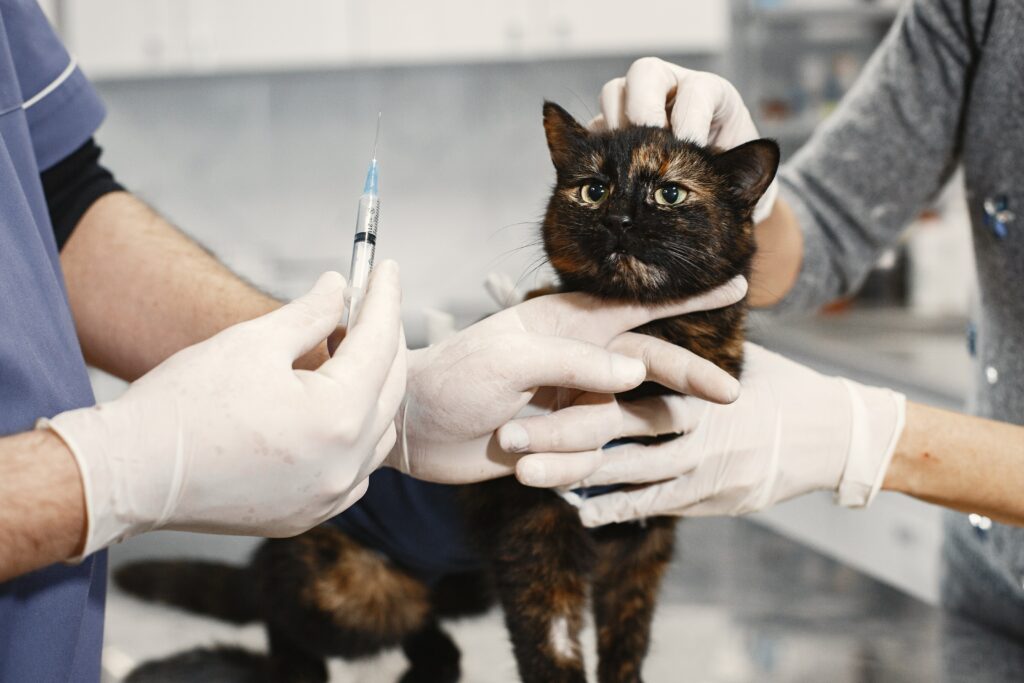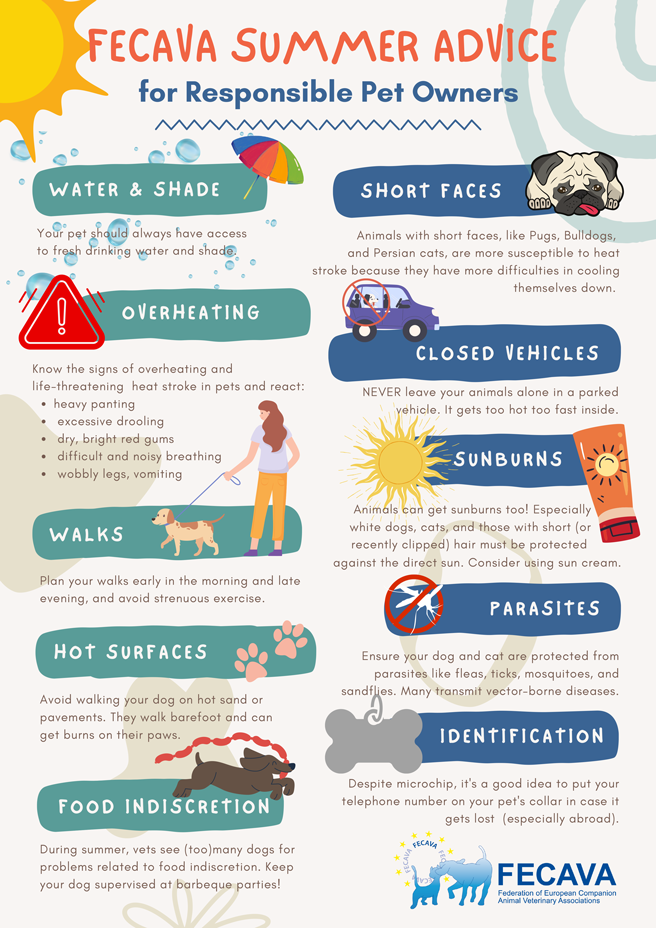
Europe’s New Facts & Figures
Recently released data from one of the Pet Alliance partners, FEDIAF, the European association representing the Pet Food Industry, has confirmed that over 50% of Europeans now benefit from the companionship of a furry friend. This is an amazing figure, very reassuring but perhaps not so surprising for pet lovers at the Pet Alliance!
Europe’s Companion League
Among the diverse array of pets, cats reign supreme in Europe. With a population of 129 million, they are the most popular companion animals, found in 27% of households. Dogs follow closely, with 106 million in 25% of European homes. These numbers reflect the deep affection Europeans have for their furry friends.
In addition to dogs and cats, Europeans share their homes with 52m birds, 30m small mammals, 23m aquaria and 12m terraria who all bring their unique charm and companionship to a household.
Reasons for Ownership
The Pet Alliance is delighted to see that so many Europeans benefit from ownership. We are also not surprised that the benefits are scientifically proven! Here are a few reasons why we choose to add pets to our families:
- Companionship is a key motive as pets bring joy to our lives, provide emotional support and reduce feelings of loneliness. A study conducted among 6000 people during lockdown, investigated links between pet ownership, mental health and loneliness. The results overwhelmingly confirmed that pets helped them cope better. Studies have also looked at the benefits of other animals such as fish and research has shown that they can help improve mood and encourage relaxation.
- Pets encourage physical activity and social interaction. They also contribute to a sense of community. In January 2024, research from the University of Western Australia among 600 children confirmed that girls who have a dog spent almost an hour more being active per day, suggesting dog ownership could help curb childhood obesity. Additionally, a study of 2600 pet owners across Australia and the US confirmed that pet owners were more likely to get to know people in their neighbourhood.

3. Owning a pet also teaches responsibility and instils empathy among children. There is lots of excellent research on the benefits of pets for children. A huge study of 31,453 children in Japan – with 36% owning a pet – confirmed that pet ownership was associated with better emotional expression in later childhood. Pets can also boost chidlren’s positive emotions and reduce anxiety.
A Future with Pets
Overall, pet ownership enriches the lives and enhances the wellbeing of adults and children across Europe. As households continues to embrace the companionship of pets, we are confident that the growing bond between humans and their pets will foster a healthier, happier society.


Summer is a fun season because it’s the perfect time to get out and enjoy activities with our pets. It’s the perfect time for outdoor activities and adventures with our furry friends.
But with the warmer temperatures and exposure to the sun, we must take extra care so they aren’t overheating or becoming dehydrated.
Dogs are known to cool down differently than people do – dogs pant to keep cool and sweat through their paws, cats clean and lick themselves as a method to cool down with their saliva.
Monitor for Signs of Heat Stress
It’s very important to keep an eye out for signs of heat exhaustion, such as excessive panting, drooling, lethargy, or vomiting. If you suspect your pet is overheating, move them to a cooler area, offer water, and contact your veterinarian. Be aware also that Flat Faced dogs and cats, like pugs, bulldogs or Persians and even rabbits are more susceptible to heat stroke, as they have more difficulties in cooling down.

We have some tips to help you be mindful of your pets’ needs, to make sure they stay safe and healthy during the summer months.
- Provide enough water: fresh drinking water should always be available. Water can also be provided by way of ice cubes, be creative and make an ice-pop for your dog or cat as a fun treat or toy.
- Provide access to cool places, shade and shelter. There are special cooling mats for pets, but simple cooling tricks such as popping a plastic water bottle in the freezer for them can also help.
- It might seem like a good idea to be outside in the fresh air, but in the hottest moments of the day, beaches or open parks are not always a good idea as there is no shade.
- Avoid intensive exercise during the day. Dogs suffer faster from heat than people, so schedule exercises in the early morning or late evening. Dogs often do not know their own limits and will keep on playing fetch with a ball until they overheat.
- Brush your dog or cat regularly, but do not shave them! Their fur is a protection against the cold but also against the heat, as it works as an isolating layer.
- Short-haired breeds can get sunburned, so use a pet-safe sunscreen. Not sure if your pet needs sunscreen? Ask your vet! Be extra careful if your cat has white ear tips as there is a link between sunburn and malignant tumours in cats. In these cats the use of sunscreen is a must.
- Pay extra attention to their paws! A hot pavement can burn your pet’s paws, so it’s always better walk on the grass or in the shade.
- Pay extra attention to hygiene. Warm weather makes Bacteria and Algae grow rapidly. So be careful with water in puddles or ponds. And don’t leave open pet food packs outside the refrigerator for too long. Always remember to thoroughly clean their food and water bowls daily..
- In summer we also see more parasites like ticks and fleas: ask your veterinarian to advise you on the best protection products for your pets as they are the experts.
- Lastly, but very importantly: NEVER leave pets alone in parked cars, even when you leave the window cracked open! The inside of a car can quickly reach dangerously high temperatures. If you see a pet in a closed vehicle, try to contact the owner of the car or the police to save the pet.

Prevention and early diagnostics
Regular veterinary check-ups are essential for keeping your pet happy and healthy. These visits help prevent diseases and detect any issues in their early stages. Not only does early detection lead to better outcomes for our beloved pets, but it also means less financial costs, reduced stress, and smoother treatment processes for both pets and their owners. Vaccinations, parasite prevention, routine deworming, dental checks and physical exams are important components of preventing diseases. Regular veterinary checks can also lower your animal’s stress when visiting a vet.
The frequency of regular veterinary checks depend on the age of the animal, previous medical history, breed and lifestyle.
• Puppies/kittens: 5 times by the age of six months (Core Vaccination Schedules)
• Adult dogs/cats: at least once a year or more frequent depending on the pet’s age, lifestyle, and health status
• Geriatric dogs/cats: every six months is recommended
Vaccination
For both cats and dogs vaccination is key in preventing life-threatening diseases. Vaccines are separated into core (strongly recommended), non-core (optional) and not recommended vaccines. Core vaccines are considered vaccines that all dogs throughout the world must receive, at recommended intervals.
For dogs, core vaccines typically include protection against:
• Canine distemper virus (CDV)
• Canine adenovirus (CAV; types 1 and 2)
• Canine parvovirus type 2 (CPV-2) and its variants
Core vaccines for cats include:
• Feline panleukopenia (FPV),
• Feline herpesvirus (FHV-1)
• Feline calicivirus (FCV)
Additionally, rabies vaccination is considered a core vaccine for cats and dogs in many regions and is often a necessity if you want to travel with your dog or cat. For more information consult your vet to ensure your animal buddy gets the necessary protection.

Dental Health
Dental disease is a common and concerning health issue for dogs and cats. While it might not always be top of mind, its impact can be significant if left unchecked. Yearly veterinary check-ups are important to prevent dental problems. If you observe bad breath, broken or loose teeth, abnormal chewing, or any other issues, it’s advisable to schedule a veterinary check-up sooner rather than later. See here for more info.
Routine Testing
Depending on your pet’s age and health status, the vet may recommend routine diagnostic tests such as blood work, urinalysis, or faecal testing to screen for underlying health problems. Screening tests delve into aspects of your pet’s health that aren’t easily visible during a physical exam, such as kidney function or blood cell counts, offering a more comprehensive understanding of their well-being.

Regular check-ups could save you money
Annual check-ups and preventive care are essential for keeping pets healthy, but also could save you money. Routine examinations can identify concerns before they worsen, potentially sparing you from expensive treatments down the line. More information here.
Less stressful vet visit
Most pets feel anxious during vet visits, and some may even show aggression due to fear. Using treats before and during check-ups can create a positive association with the experience. “Happy visits” at the clinic can put your pet at ease, making vet trips a more positive experience. Don’t hesitate to consult with your vet for more tips on easing your pet’s stress during visits and check out these useful tips.
Afterall, regular vet check-ups are essential for your pet’s health, detecting issues early, save you money in the long run and allow you to spend longer quality time with your companion. So why wait, book your next check-up now!
